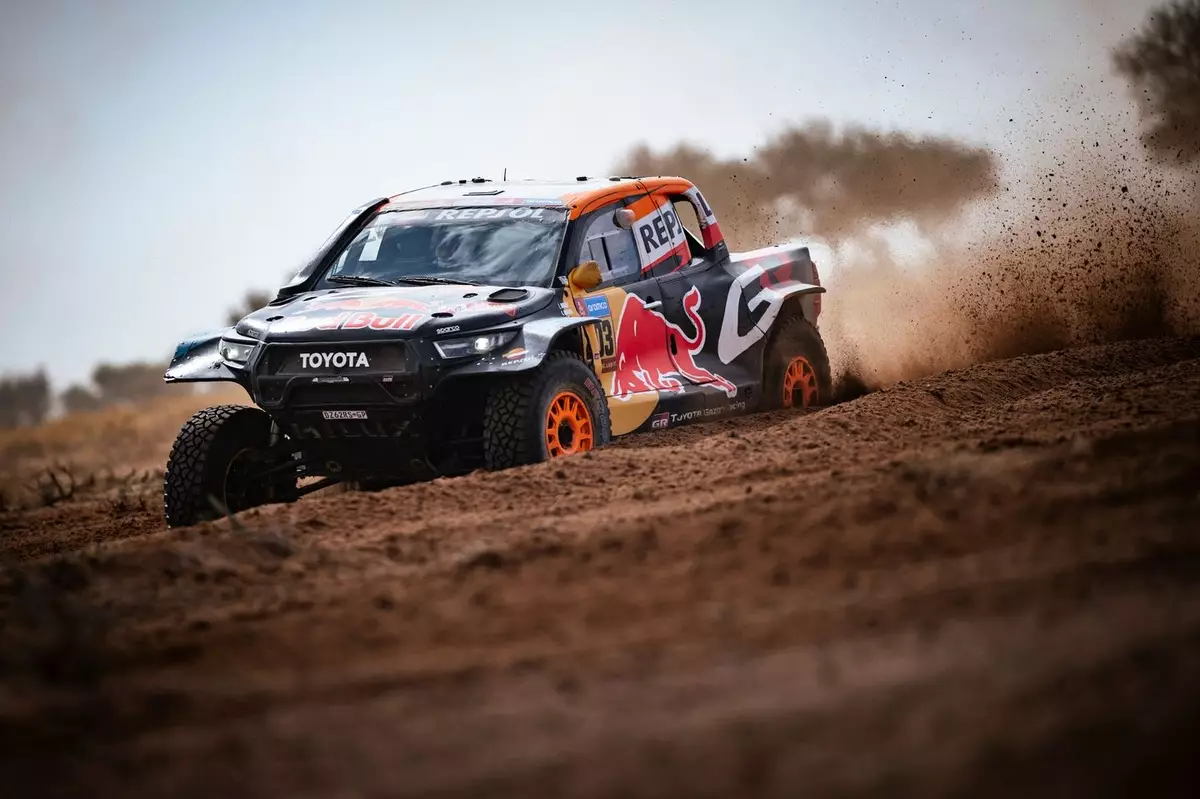The Dakar Rally, a grueling test of endurance, skill, and strategy, witnessed a remarkable turn of events in Stage 7, where Toyota’s Lucas Moraes prevailed over fierce competition, showcasing resilience in the face of myriad challenges. This stage was unlike any other, marked by unpredictable weather, navigational errors, and shifting standings that kept spectators on the edge of their seats.
Weather Woes and Navigational Nightmares
Set around Al Duwadimi, the stage was altered to a shorter 418km, aimed at ensuring the safety and efficiency of medical operations amidst the race. The anticipation of favorable conditions took an unexpected turn when rain made the already complex terrain even more treacherous. Such weather fluctuations not only tested the drivers’ resilience but also forced them to adapt quickly, as managing a vehicle on slick, muddy roads requires a completely different skill set than racing on dry surfaces.
Moreover, the race organizers announced a roadbook error that occurred at the 158km mark. This mistake resulted in multiple competitors losing their way, escalating the race’s aggravation. In a bid to maintain fairness, the organizers neutralized a problematic 20km stretch, revealing the inherent unpredictability of rally racing—not only do drivers contend with physical challenges, but they must also navigate bureaucratic ones.
From the pandemonium rose Lucas Moraes, who demonstrated extraordinary prowess by clinching a significant victory with a commanding lead of 7 minutes and 41 seconds over his competitors. This triumph was particularly significant given that Moraes had endured a mechanical breakdown in the previous stage, which had cost him a staggering three hours and nearly eliminated his chances for overall victory. His ability to bounce back exemplifies the mental fortitude required in such a demanding sport.
Moraes’s Toyota Hilux performed admirably, enabling him to capitalize on the chaos around him. While others stumbled, he seized the opportunity, navigating the tricky terrain and outpacing drivers who were originally ahead of him. This dramatic resurgence underscores the unpredictable nature of the Dakar Rally, where fortunes can change in an instant.
Mattias Ekstrom, a formidable competitor from Ford, had an eventful day. Initially leading at the day’s first checkpoint, he systematically lost ground before recovering to finish second. The complexities of the course and the fluctuating standings reflect the competitiveness of this event. His setback could have been catastrophic for his overall ranking; nevertheless, his ability to regroup and finish strong highlights the strategic elements inherent in rally racing.
With strong performances from team-mates like Mitch Guthrie Jr., who secured third place, Ford demonstrated consistency and depth in talent. Each driver’s performance impacts the collective standing of their team, and placed together, they form a robust barrier between them and their rivals.
While Moraes was celebrating, others faced challenges. Henk Lategan, leading the overall standings prior to the stage, was unable to maintain his momentum, suffering a significant loss of 15 minutes and finishing 15th on the day. Lategan’s lead dwindled to a mere 21 seconds ahead of Yazeed Al-Rajhi, reflecting how quickly fortunes can shift in this high-stakes arena.
Likewise, five-time event winner Nasser Al-Attiyah struggled but benefited from the organizers’ correction of stage times after navigational errors, enabling him to emerge in fourth. The competition remains fierce, with top contenders clawing back crucial minutes as they push forward into the remaining stages.
With only five stages left in the 2025 Dakar Rally, the balance of power among competitors is precarious. Moraes’s victory positions him favorably, but the tightening gaps signify that the battle is far from over. Each team must now recalibrate their strategies, pushing the limits of their machines and their own capabilities to emerge victorious.
In a sport where every second counts and uncertainty looms at every corner, the lessons learned from Stage 7 will resonate throughout the remainder of the rally, serving not just as a testament to individual driver skills but also to the unpredictable essence of the Dakar Rally itself.


Leave a Reply